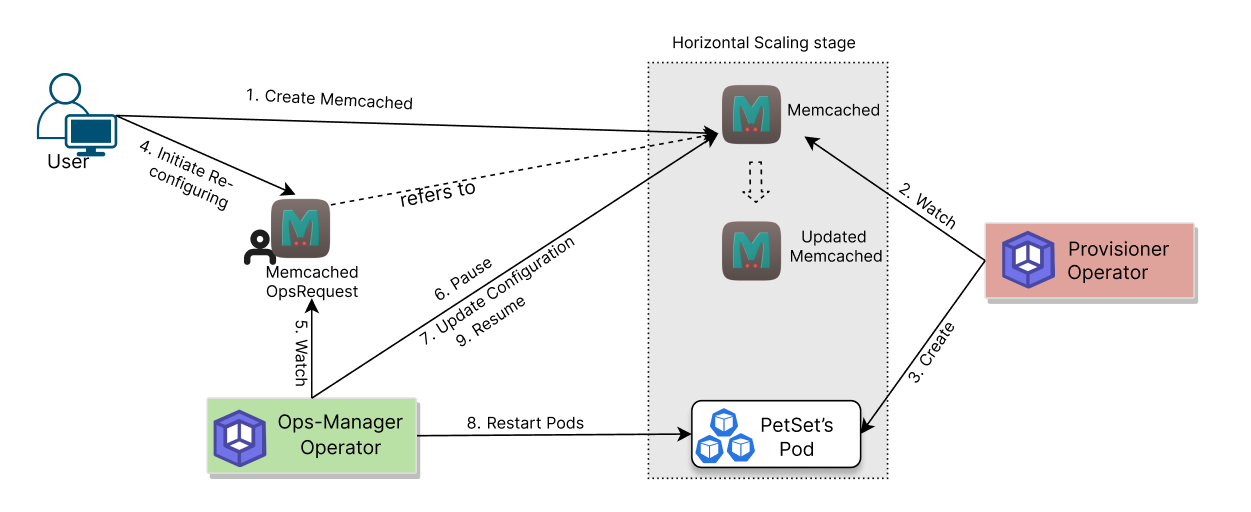You are looking at the documentation of a prior release. To read the documentation of the latest release, please
visit here.
New to KubeDB? Please start here.
Memcached Horizontal Scaling
This guide will give an overview on how KubeDB Ops Manager scales up or down of Memcached database for both the number of replicas and shards.
Before You Begin
- You should be familiar with the following
KubeDBconcepts:
How Horizontal Scaling Process Works
The following diagram shows how KubeDB Ops Manager scales up or down Memcached database components. Open the image in a new tab to see the enlarged version.

The updating process consists of the following steps:
At first, a user creates a
MemcachedCustom Resource (CR).KubeDBCommunity operator watches theMemcachedCR.When the operator finds a
MemcachedCR, it creates required number ofPetSetsand related necessary stuff like appbinding, services, etc.Then, in order to scale the number of replica for the
Memcacheddatabase the user creates aMemcachedOpsRequestCR with desired information.KubeDBEnterprise operator watches theMemcachedOpsRequestCR.When it finds a
MemcachedOpsRequestCR, it halts theMemcachedobject which is referred from theMemcachedOpsRequest. So, theKubeDBCommunity operator doesn’t perform any operations on theMemcachedobject during the scaling process.Then the Memcached Ops-manager operator will scale the related PetSet Pods to reach the expected number of replicas defined in the MemcachedOpsRequest CR.
After the successful scaling the replicas of the related PetSet Pods, the KubeDB Ops-manager operator updates the number of replicas in the Memcached object to reflect the updated state.
After successfully updating of
Memcachedobject, theKubeDBEnterprise operator resumes theMemcachedobject so that theKubeDBCommunity operator can resume its usual operations.
In the next doc, we are going to show a step-by-step guide on updating of a Memcached database using scale operation.



































